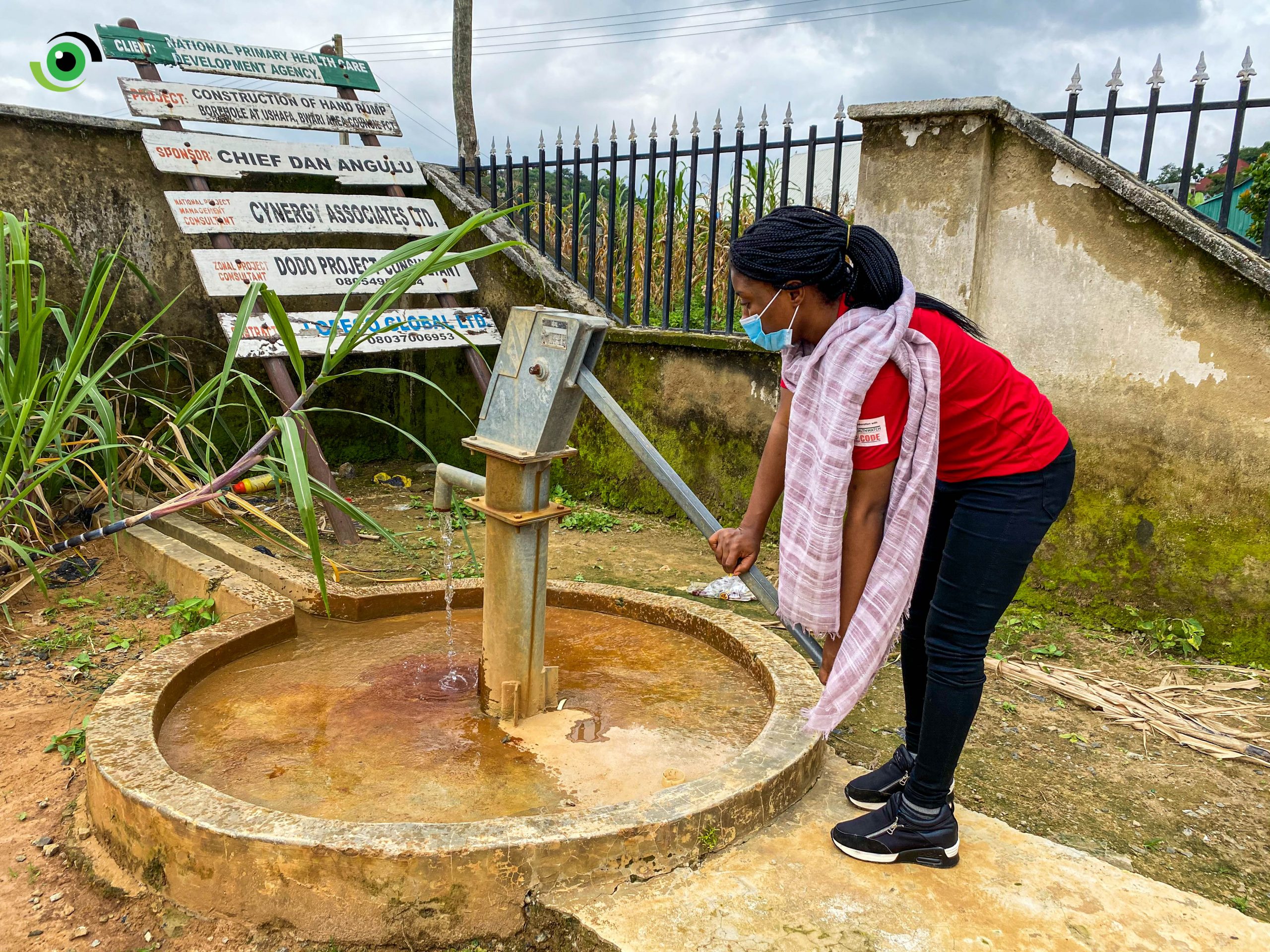By Atinuke Akande-Alegbe and Bashar Abubakar (Lead Writers)
Healthcare, according to the Alma-Ata declaration of 1978, is a basic human right of all people regardless of race or socioeconomic status. The declaration went further to identify primary health care as a gateway to achieving optimal healthcare for all. Primary health care is so important that it can, if adequately funded, cater to more than 80% of an individual’s health care needs throughout his or her life. For primary health centres (PHCs) to operate at their optimal capacity and serve the public with the necessary care, they must be equipped with some basic, but vital, amenities. Some of those amenities are water, sanitation, and hygiene (WASH), also declared as human rights by the United Nations in 2010.
Access to safe, quality and equitable WASH services is fundamental to preventing and controlling infections in health care facilities and ensuring the delivery of quality healthcare services — a requirement for achieving universal health coverage. The current lack of access to water and sanitation services in healthcare facilities in Nigeria poses a threat to quality healthcare delivery, especially at the primary health care level where a majority of the population in rural communities access health care services.
As Nigeria strives to achieve Sustainable Development Goal (SDG) 6 — Clean water and sanitation by 2030 — Nigeria Health Watch in partnership with EpiAFRIC conducted an assessment to evaluate the availability, quality and equitable access to WASH services in PHCs in the Federal Capital Territory (FCT) and Niger State. The goal of the assessment was to gather evidence to help improve WASH in healthcare facilities in Nigeria. The primary objective was to determine the availability and functionality of gender-sensitive and people-friendly services in PHCs. A total of 62 PHCs, 50 in Niger and 12 in FCT, were assessed and they were selected purposively to represent equal numbers of PHCs in urban and rural communities.

WASH for mothers and children
Unsafe WASH services are detrimental to the health outcomes of women and children. In developing countries such as Nigeria, an estimated 10–15% of maternal deaths are due to infections that can be directly linked to unhygienic conditions during labour and birth, and the postnatal period.
Drinking unsafe water can pose maternal health risks. Likewise, a PHC with a dirty environment and stagnant water can encourage the breeding of mosquitoes, posing high risks of malaria infection to pregnant women. For any health worker delivering a baby at a health facility, access to clean and safe water is a necessity. The use of contaminated instruments or unclean hands during deliveries can spread infections to the mother and her newborn.
The WASH in PHC assessment showed a lack of or inadequate availability of these services in some health facilities. For instance, 25% of the facilities visited in the FCT and 65% of the facilities visited in Niger state do not have access to pipe-borne water. Additionally, of the facilities visited that have pipe-borne water, 58% in FCT and 55% in Niger State experience frequent interruptions in their water supply. Therefore, a thirsty child on an immunisation visit or pregnant woman attending antenatal in any of these facilities may have to wait till they get home before getting clean water to drink.
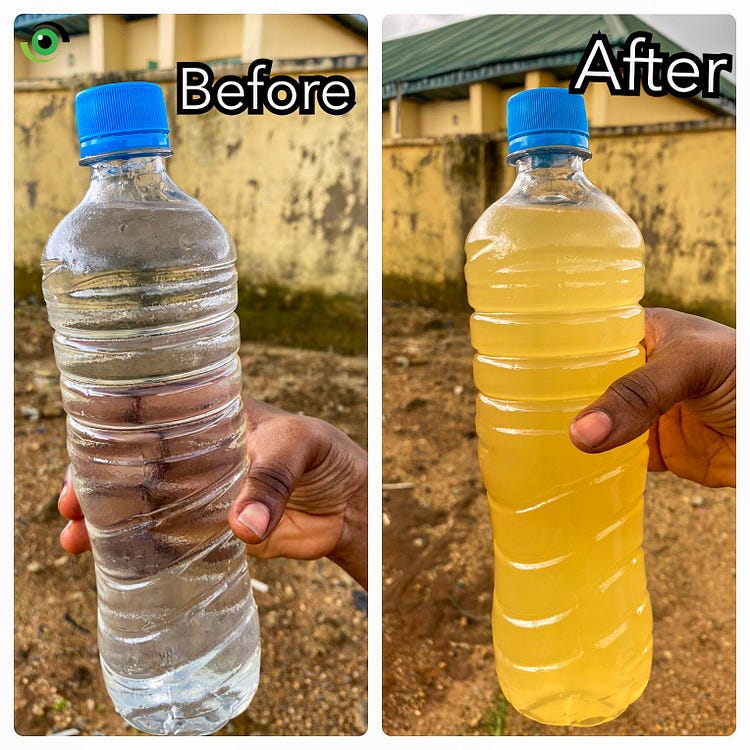
The unavailability of water in some PHCs has left some women with no choice but to give birth at home. In a video shot during the assessment, Aisha Bukar, the Amirah of the Federation of Muslim Women’s Associations in Nigeria (FOMWAN), Kwali Area Council, shared how pregnant women in Kwali cannot deliver their babies in the PHC, especially at night, when there is no access to water.
Challenges in infection, prevention and control protocols
Infection prevention and control (IPC), a critical component of protection from infectious diseases for both health workers and patients, will not be optimal without access to proper WASH services. When these WASH services are poor or absent, patients and health workers are at risk of contracting hospital-borne infections, one of the biggest challenges that health facilities face. These infections not only delay the recovery of patients and lead to complications in their treatment, but they can also incapacitate equally vulnerable health workers.
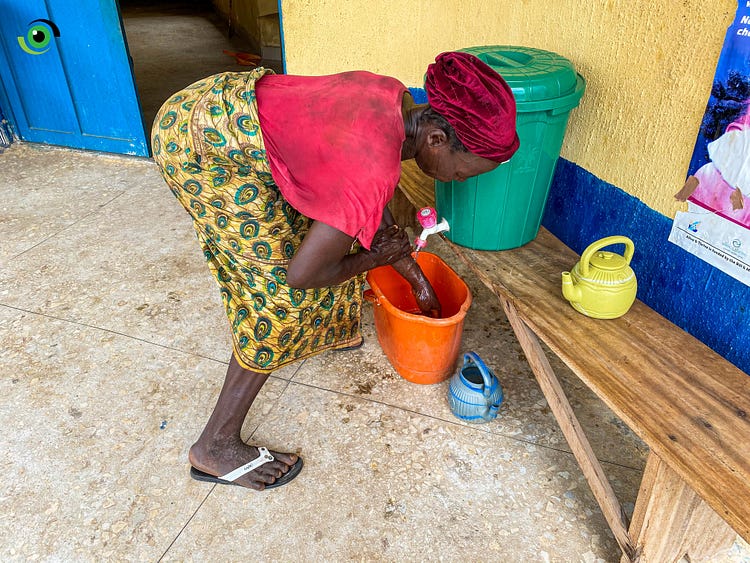
According to the WHO, effective IPC programmes lead to more than a 30% reduction in healthcare-associated infections. To control infectious disease transmission in and around health facilities, cleanliness must be prioritised in the wards and the environment. In Niger State, 35% of facilities visited did not have IPC protocols and 18% of the facilities that have the protocols do not follow them regularly. In the FCT, 83% of facilities visited did not have IPC protocols and none of the facilities that have the protocols follow them. This poses a huge challenge in the FCT. All healthcare workers should have at least a basic understanding of IPC principles. These principles are vital to limit the spread of infectious diseases, reduce antimicrobial-resistant infections and enhance patient safety. In addition, every PHC needs to develop their IPC strategies based on their patient population and services provided.
During the presentation of the assessment findings in the FCT, Vivianne Ihekweazu, Managing Director at Nigeria Health Watch, said, “Majority of our population does not have access to WASH services. This poses a bigger problem especially now that we are in a pandemic.” In a pandemic such as COVID-19, IPC measures must be enforced to prevent or limit the transmission of the virus in healthcare facilities. Although all facilities visited in FCT had visible handwashing stations positioned at strategic points, their use was not enforced. Hand hygiene is one of the most effective measures to prevent the spread of COVID-19 and health workers need to mandate other staff and visitors to wash their hands before services are delivered.
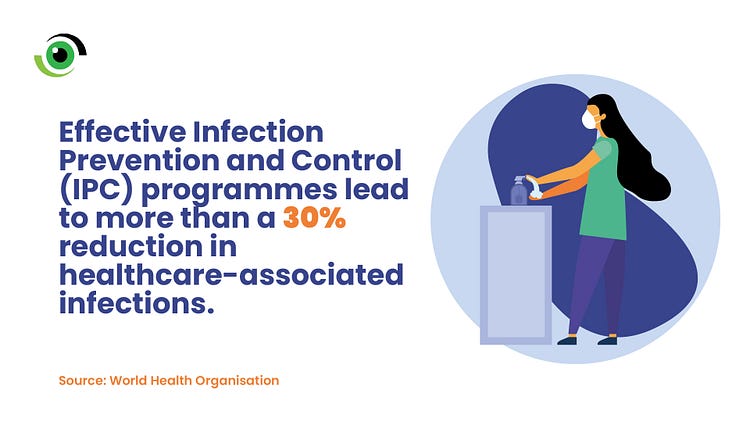
Sanitation and health go hand in hand
Access to toilets for both staff and patients is one of the basic requirements for health facilities. According to the Minimum Standards for Primary Health Care in Nigeria, every PHC should have functional separate male and female toilet facilities with water supply within its premises. 41% of the facilities visited in Niger State do not have separate toilets for male and females, while in the FCT, 42% of the facilities visited do not have them. Findings from the assessment showed that non-separation of toilets by gender compounded the challenge of usage by women. In fact, in the FCT, 42% of facilities assessed have only one functional toilet and in Niger State, only 18% have a functional toilet. In these facilities, male and female patients are forced to share only one toilet. Consequently, many women cannot use toilets in health facilities. During the assessment, women shared experiences of how they would limit their eating or drinking before visiting health facilities to delay the need to use the toilet when they are at the facility. Every PHC should have a women-friendly toilet that is safe, private, accessible, well managed and caters to their menstrual hygiene needs. This will ensure the dignity and privacy of the women and boost their confidence in going to health facilities.
Most respondents expressed dismay about the condition of toilets in the facilities, with complaints ranging from filled soak-away pits, dilapidated fixtures and even non-availability of the toilets in some facilities. “When our clients come, if they want to ease themselves, we take them to our neighbours to go and ease themselves,” a health worker in Gwada, Niger State said. In PHCs where hygiene should be adequately promoted, patients are left with no choice but to openly defecate around their surroundings. In Tupechi, FCT, a health worker said “We have the toilets, but we don’t have water to flush the toilets. So, we can’t use all the toilets”. This comes as no surprise as only 16% of PHCs visited in Niger State and 42% of those visited in the FCT have running water.
Getting rid of hazardous hospital waste
Waste disposal practices have a crucial role to play in preventing and controlling the spread of diseases to health workers, sanitation workers, patients and the public. Improper disposal of waste is a huge risk to the environment as it can impact human health by contaminating water bodies and polluting the air through emissions of highly toxic materials during the incineration or degradation process. Additionally, improper disposal of sharp objects such as needles could result in injury for health workers, patients and visitors. These injuries could also happen to the public. especially those who live close to the health facilities.
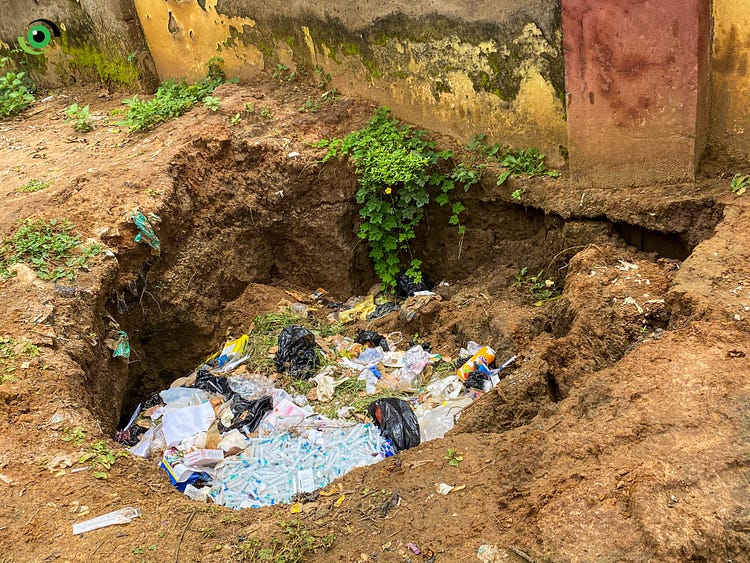
The assessment shows gaps in the proper management of waste from the health facilities as recommended by the Technical Guide for WASH in PHCs in Nigeria. For example, 47% of health facilities in Niger state, do not have a refuse pit onsite to ensure proper disposal of sharp objects. Instead, they collect the waste and send them to the primary health care board. Also, only 12% of facilities use incineration as a method of waste management. In the FCT, only 14% of the facilities use the recommended refuse pit as a method of managing proper disposal of sharp objects and only 33% use incineration.
To receive or provide care, WASH services should be available
Clearly, there are gaps in WASH services in PHCs across Niger state and the FCT. The findings from this assessment help map out some evidence-based recommendations to improve WASH in PHCs. Our recommendations focus on improving the quality and availability of routine evidence around the state of WASH in PHCs around the country, strengthening national standards and accountability mechanisms, improving the actual infrastructure and maintenance needed for WASH services, and improve capacity of health workforce to carry out proper WASH practices and share learning with fellow health workers and policy makers. Evidence-generating studies such as this are recommended to create a true picture and an increased sense of urgency for strengthened WASH services in Nigeria.
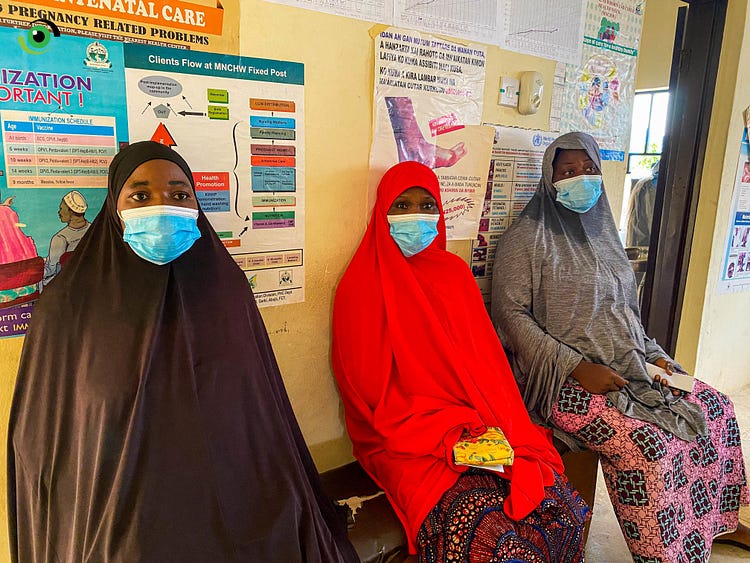
Although health facilities in rural areas have less access to WASH services than their counterparts in urban areas, the challenge cuts across several economic settings. The resultant effect of these poor services encourages poor health-seeking behaviour particularly for women and children, widespread hospital and community transmission of infectious diseases and poor utilisation and thus degradation of other facilities in health centres. Furthermore, when clean water, decent toilets, good hygiene and waste disposal services are available, community members are more confident and comfortable in seeking care from the facilities. Thus, infectious disease transmission will be greatly reduced, facilities will be cleaner, funds budgeted for water will be repurposed and both patients and health workers will ultimately be safer. Governments, especially at the state and local levels, have a crucial role in making sure these WASH services are available.
For Nigeria to overturn its many poor health indices, people must seek care from health facilities and they can only do that when they feel comfortable in those facilities. As Dr Tochi Okwor, AMR & IPC Programme Coordinator at the Nigeria Centre for Disease Control (NCDC) emphasised during the presentation of findings in the FCT, “WASH is about equity and justice. Often times the people that need it the most are those that can’t provide it for themselves.” For our health workers to give their best, they must have the basic needs, which include WASH services at their workplaces. No one should fall sick or feel uncomfortable when seeking or providing care.


